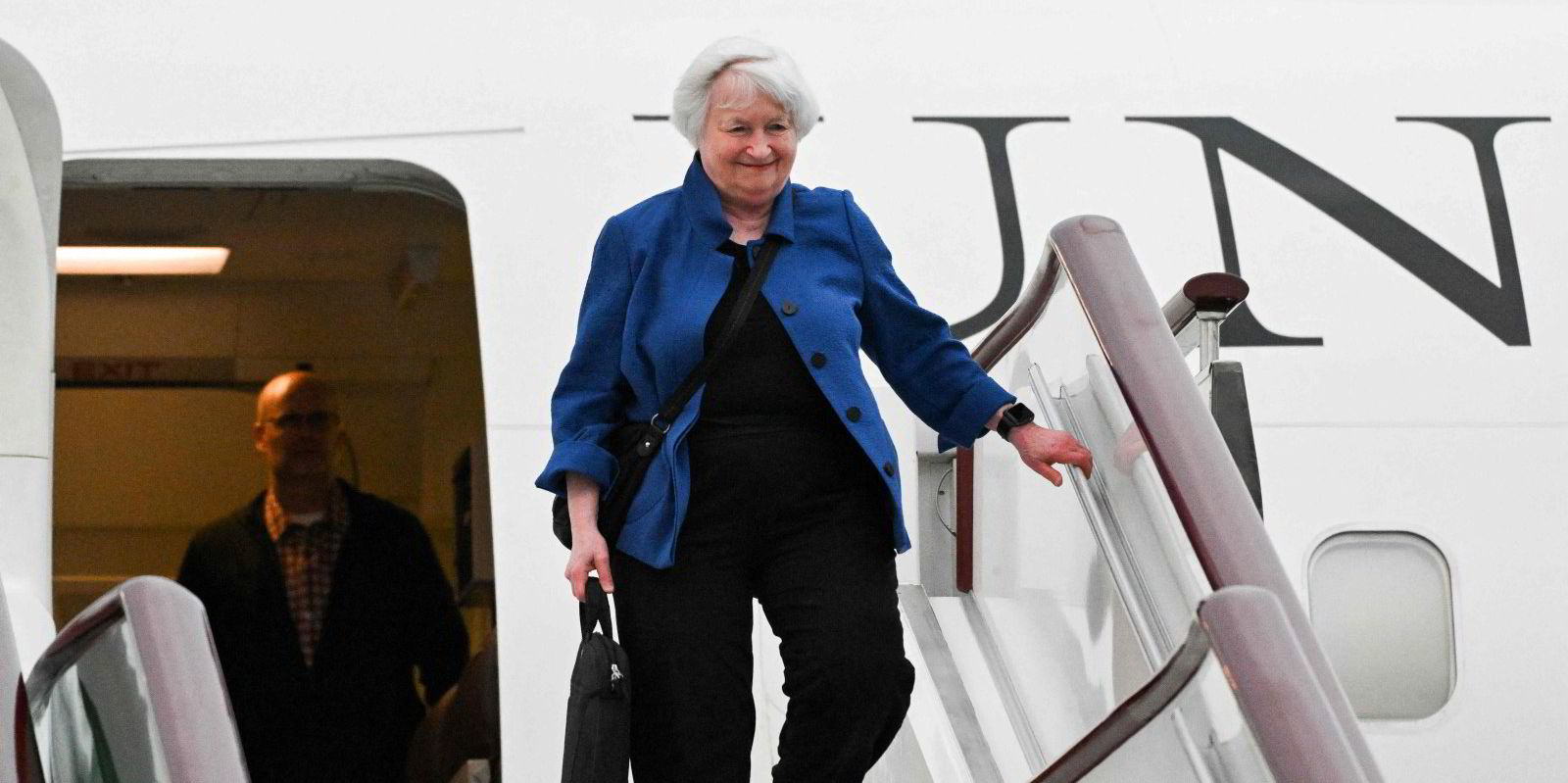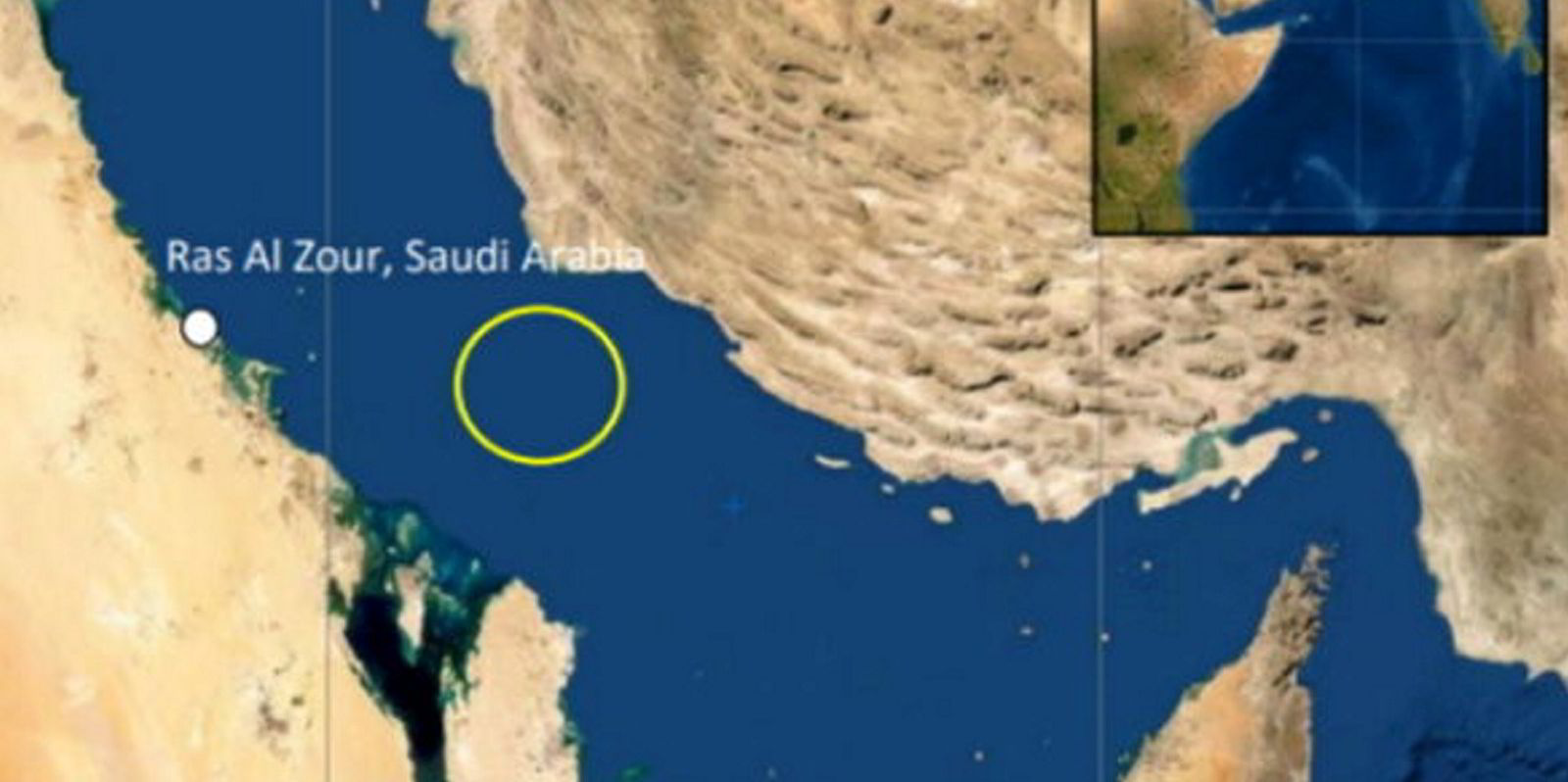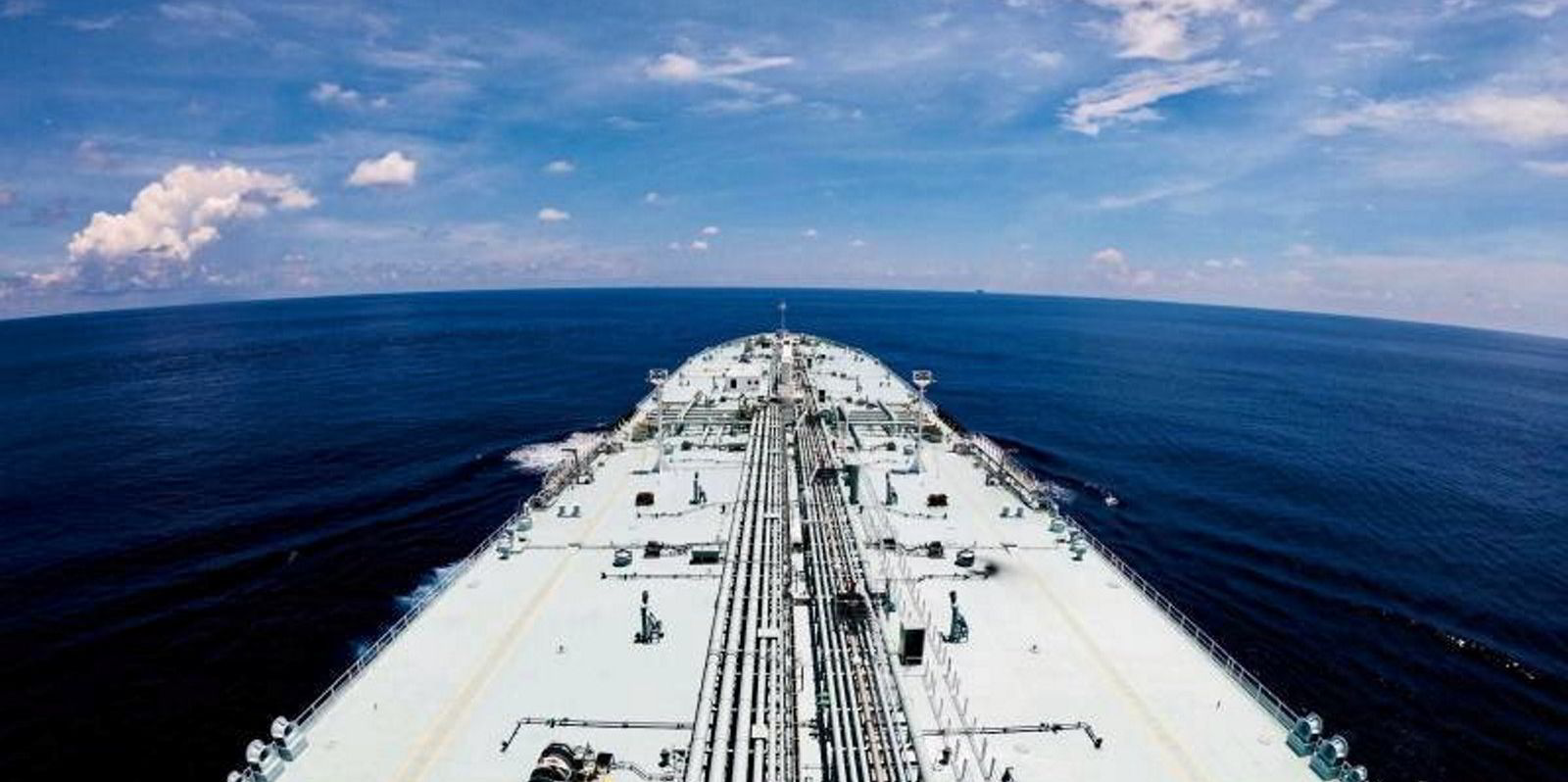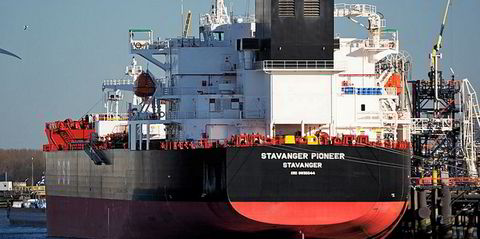The US government has slapped a Dubai ship manager and 13 vessels in its stable with new sanctions as part of growing pressure by Washington on crude shipping that helps fund Iran’s military.
The Treasury Department accused United Arab Emirates-based Oceanlink Maritime of facilitating the shipment of Iranian commodities on behalf of Iran’s Armed Forces General Staff and the country’s Ministry of Defence and Armed Forces Logistics.
Treasury undersecretary Brian Nelson, who is in charge of terrorism and financial intelligence matters, said the move is part of an effort to disrupt Iran’s ability to finance proxy groups and support Russia’s war on Ukraine.
“The United States will continue to use our full range of tools to target the illicit funding streams that enable Iran’s destabilising activities in the region and around the world,” he said.
Oceanlink was placed on a sanctions blacklist run by the department’s Office of Foreign Assets Control alongside a fleet of tankers and LPG carriers that it manages.
The company, which could not be reached for comment for this story, is accused of being “deeply involved” in shipping Iranian cargoes on behalf of Tehran’s military.
Newly added to the blacklist is the 309,000-dwt Hecate (built 2002), which Treasury officials accused of loading $100m in commodities via ship-to-ship transfer from an already sanctioned VLCC — National Iranian Tanker Corp’s 297,000-dwt Dover (built 2003).
The department said the transfer was carried out on behalf of Iran’s Sepehr Energy Jahan Nama Pars, which was sanctioned in November.
And the ship is accused of using obfuscation techniques to conceal the location of the vessels during the transfer.
Officials said Sepehr Energy also used two other Oceanlink-managed VLCCs — the 301,000-dwt Anthea (built 2005) and 299,000-dwt Boreas (built 2002) — to move its cargoes.
Also added to the blacklist are four LPG carriers, including three VLGCs.
They are the 78,500-cbm Cape Gas (built 1992), 82,000-cbm Ourea (built 2007), 78,900-cbm Oceanus Gas (built 2010) and 7,284-cbm Calypso Gas (built 1997).
The Treasury Department sanctioned four aframax crude tankers: the 107,000-dwt Hebe (built 2002), 106,000-dwt Glaucus (built 2007), 99,100-dwt Meraki (built 1999) and 104,900-dwt Elsa (built 2003).
Two MR product tankers also made the list. They are the 46,900-dwt Baxter (built 2004) and 46,300-dwt Demeter (built 2003).
The Treasury Department accused the ships of moving Iranian cargoes.
United Against Nuclear Iran, a pressure group that identifies ships operating in trades that fall under sanctions against Tehran, has all 13 ships on its ghost fleet list.
“By stopping these vessels in their tracks, we can significantly cut the revenue stream to the [Islamic Revolutionary Guard Corps] terrorists, a crucial step in weakening their destabilising activities,” chief of staff Clare Jungman wrote on X.






